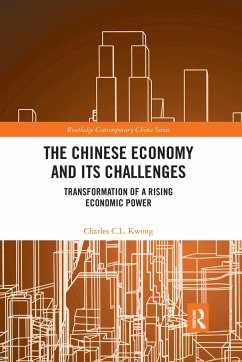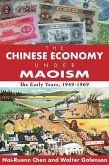The remarkable transformation of the Chinese economy in terms of its structure and growth has drawn unprecedented attention from academics, policy makers and businessmen alike. In the past four decades, China swiftly transformed from a centrally-planned to a market-oriented economy, with an economic size just behind the US and ahead of Japan. Amid commendations for China's economic success offering valuable reform and growth lessons to other developing countries, underlying challenges have been emerging, which constitute long-term risks in shaking China's sustainable success. These challenges encompass a wide range of sectors and issues such as the rural-urban divide, state monopoly, policy loans in the banking sector, lack of skilled and sophisticated workers, environmental degradation, etc. This book unveils the risks and challenges embedded in China's spectacular economic success and demonstrates that effective handling of these challenges is vital for China to avoid falling into the "middle-income trap". It is elucidated that feasible solutions are available to accommodate these risks and the clue of success lies on the willingness and ability of China's central leaders to implement further reforms. This book is a valuable reference for undergraduate and postgraduate students, academics, and public and business policy makers who are concerned about the current status and future development of the Chinese economy.
Hinweis: Dieser Artikel kann nur an eine deutsche Lieferadresse ausgeliefert werden.
Hinweis: Dieser Artikel kann nur an eine deutsche Lieferadresse ausgeliefert werden.








